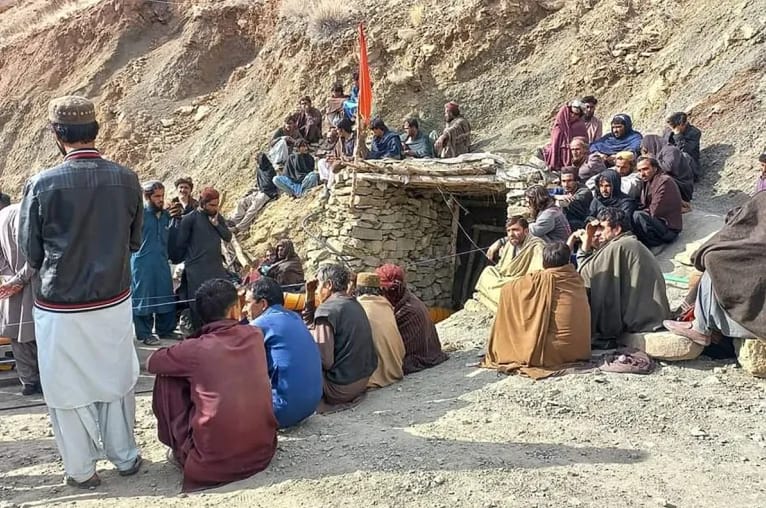Baluchistan's endless cycle of bloody violence targets miners
At least 21 victims - mostly Pashtuns - in a terrorist assault on the homes of workers in one of the economic activities seen as a symbol of Islamabad's control over local resources. Local activists to AsiaNews: ‘People are angry, we need real initiatives for dialogue with the Baluchis. But terrorism only aggravates the problems’.
Beluchistan (AsiaNews) - Dozens of assailants armed with guns, rockets and hand grenades against workers of a group of small private coal mines. This is the latest chapter in the long chain of violence in the Baluchistan region of south-western Pakistan that took place on the morning of Friday, 11th October.
At least 21 miners, four of them Afghans, were killed in their sleep or shot in actual executions in the Duki area in an assault that was not claimed, but which is also suspected to be the work of the BLA, the Baluchistan Liberation Army, which just a few days ago in an attack had killed two Chinese engineers.
Why this wave of violence in Baluchistan? And what are the ways out of it? Speaking to AsiaNews, Mian Asif (stage name Wisi Baba), a famous writer and analyst, comments: ‘There is an insurgency in Baluchistan, the provincial government does not have the support of the local population and is unable to make decisions. The people have many real problems, first of all unemployment with young people who cannot find a proper job. This region has been the backyard of the Pakistani governments, but now the people are not satisfied with projects like the Gwadar port (a key hub of Beijing's Belt and Road Initiative ed) or the mines. Their problems have increased and they feel that these development projects are a kind of oppression against them. Geopolitical situations, terrorism in the region and unrest have quadrupled the problems. Baluchistan would really need a local government and rapid development projects. On the other hand, a peaceful dialogue between the state and these angry people is needed: it should give them a sense of belonging, people should know that these mega projects are for them and that they will benefit from them. Peace in the region will not come overnight: it is a long process and unfortunately we have not even started to move in this direction'.
Naseem Anthony, human rights activist, adds: ‘The targeted killings of workers in Baluchistan pose a serious threat to Pakistan's economic stability, especially at a time when Pakistan is preparing to host the Shanghai Cooperation Organisation (SCO) summit. This growing unrest sends a clear message from extremist groups, signalling their intention to destabilise the region and hinder the country's development. Besides endangering the lives of workers, they risk deterring foreign investors at a critical time for Pakistan's fragile economy. It is imperative that political leaders take decisive action, demonstrating unity and ensuring zero tolerance for violence'.
Aamir Kakkazai, a writer and analyst from Peshawar, told AsiaNews: ‘The people killed were poor miners, they all belonged to the Pashtu-speaking area. Baluchistan has turned into a land of terror since General Musharraf killed Bugti, a Baluchi leader. As time passed, none of the Pakistani state officials tried to mend fences with the angry Baluchi youth, instead starting a limited war. It is sad that none of the state officials have tried to heal their wounds. The state should control the situation wisely and protect the people of Baluchistan by building peace in the region'.
‘The Baluchis are prejudiced,’ Fr Khalid Rashid Asi adds, ‘because they think their resources are being plundered by other provinces. To build peace, the State must put an end to prejudice and hatred with wise steps in the region. The Baluchis must be able to enjoy their rights. On the other hand, their organisations should also abandon terrorism; with these terrorist activities they are showing that they do not accept the state's mandate. There is no solution in terrorism; peace will only prevail through dialogue'.
‘For me, the solution to these problems lies in fair elections in the province and in giving the Baluchi people the right to govern themselves,’ concludes Husnain Jameel, journalist and columnist.
‘When the resources of Baluchistan are used for the Baluchi, then there will be peace. When they are certain that no one is plundering their resources, they will be satisfied and the peace building process will be started. Let the Baluchi leaders participate in the elections: let them govern and let peace prevail'.
24/10/2019 17:56
11/08/2017 20:05







.png)










